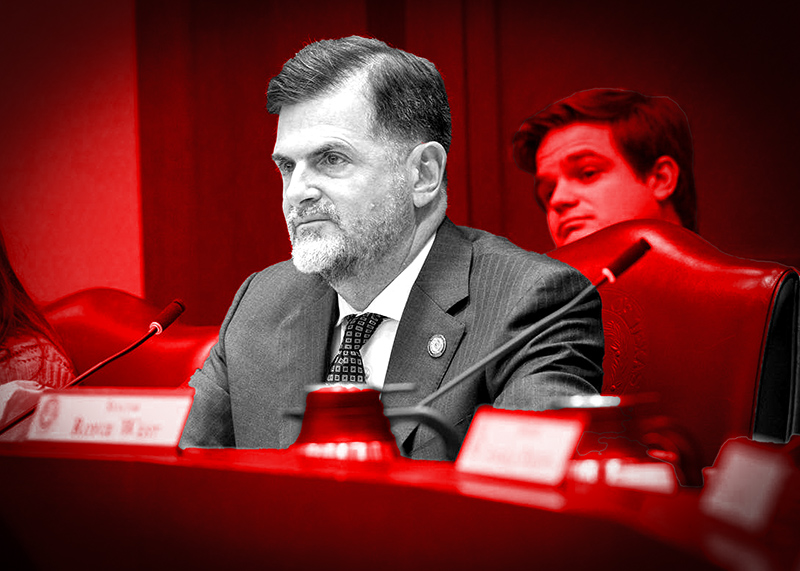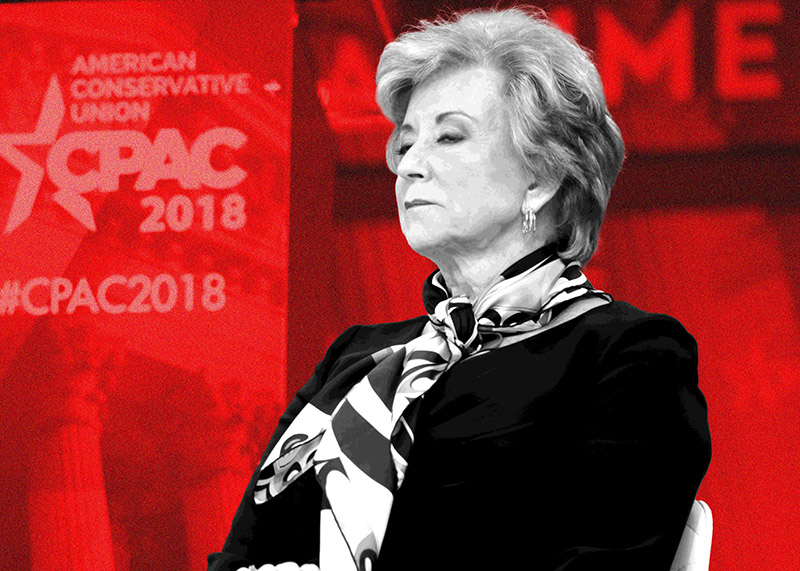Court rules against Indiana teacher who resigned rather than call trans students by their chosen names
Federal judge finds school district could not accommodate teacher's religious beliefs without disrupting school atmosphere.

A federal judge in Indianapolis has ruled against a former teacher who claims he was forced to resign due to his discomfort with calling transgender students by their chosen names.
On Monday, U.S. District Judge Jane Magnus-Stinson, of the Southern District of Indiana, rejected arguments made by lawyers for John Kluge, a 30-year-old former orchestra teacher at Brownsburg High School.
Kluge claimed that he was discriminated against when the Brownsburg Community School Corporation failed to accommodate his religious beliefs, and retaliated against him when he objected to a policy instructing teachers to address students by their preferred names and gender pronouns.
Kluge, who worked as a music and orchestra teacher from 2014 to May 2018, was one of four teachers who submitted a letter to the principal in May 2017 objecting to plans to adopt policies in the coming school year intended to show support for transgender students, including plans to address students by their preferred pronouns.
In that letter, the four teachers expressed their religious objections to transgenderism, asking that faculty and staff not be required to refer to transgender students by their preferred pronouns.
They also said they did not want transgender students to be allowed to use restrooms or locker rooms that align with their gender identity, reports Indianapolis-based CW affiliate WISH TV.
The Brownsburg Community School Corporation later adopted a policy requiring staff to refer to students by their chosen name listed in school records, but also allowed for that change only if a student “presented a letter from a parent and a letter from a healthcare professional regarding the need for a name change.”
The three other teachers who had joined Kluge accepted the name change policy, but Kluge did not, which led to him being temporarily suspended.
Kluge then reached an agreement with the district superintendent and the human resources director to call all students by last names only. But when Kluge began referring to students by only their last names, the school’s principal began receiving complaints from students and faculty.
The situation continued to escalate throughout the school year, until administrators rescinded the last-names-only policy. They then discussed whether Kluge should finish the school year, or resign mid-year, offering to allow him to submit his resignation and not process it until the end of the school term.
On April 30, 2018, Kluge submitted formal resignation and asked that it not be shared with anyone until May 29, citing his objections to the district’s name policy and the loss of his accommodation as the reason for his resignation. But on May 25, he tried to withdraw his resignation, which school officials would not allow him to do. The school board formally accepted his resignation on June 11.
Kluge later sued, arguing that the failure to accommodate his religious beliefs constituted a form of discrimination that ultimately forced him to submit his resignation, because his religious beliefs prevent him from complying with the district’s policy. He also alleged that the explanation of the resignation process led him to believe he could turn in a conditional resignation that he could later withdraw
See also: Virginia teacher fired for refusing to call transgender student by male pronouns
In her ruling, Magnus-Stinson found that the Brownsburg Community School Corporation “could not accommodate Mr. Kluge’s religious beliefs without sustaining undue hardship,” because his insistence on referring to students by last names only interfered with the school district’s mission of providing a welcoming environment in which to educate students but potentially exposed the district to liability when two students offended by Kluge’s insistence on referring to them using their last names complained.
“Mr. Kluge’s religious opposition to transgenderism is directly at odds with BCSC’s policy of respect for transgender students, which is grounded in supporting and affirming those students,” Magnus-Stinson wrote. “BCSC is a public-school corporation and as such has an obligation to meet the needs of all of its students, not just a majority of students or the students that were unaware of or unbothered by Mr. Kluge’s practice of using last names only.
“BCSC has presented evidence that two specific students were affected by Mr. Kluge’s conduct and that other students and teachers complained,” Magnus-Stinson continued. “And, given that Mr. Kluge does not dispute that refusing to affirm transgender students in their identity can cause emotional harm, this harm is likely to be repeated each time a new transgender student joins Mr. Kluge’s class (or, as the case may be, chooses not to enroll in music or orchestra classes solely because of Mr. Kluge’s behavior). As a matter of law, this is sufficient to demonstrate undue hardship, because if BCSC is not able to meet the needs of all of its students, it is incurring a more than de minimis cost to its mission to provide adequate public education that is equally open to all.”
[adveert1]
Magnus-Stinson also rejected Kluge’s claims of fraud through misrepresentation, noting that his resignation “was not expressly conditioned on anything, did not contain any language concerning his ability to withdraw it, and instead merely requested that the letter not be ‘processed’ and that no one be notified until a certain date.” And she rejected his claims alleging retaliation, arguing that Kluge failed to show evidence that he had proposed an alternative accommodation after being told the last names-only policy would not work.
See also: Nonbinary student goes viral after calling out professor who refused to use correct pronouns
Kluge’s attorney, Kevin Green, told WISH TV that his client has 30 days to decide whether to appeal the ruling to the 7th U.S. Circuit Court of Appeals.
“Judge Magnus-Stinson’s 52-page ruling covers multiple aspects. Per 7th Circuit rules, even the 30 day timetable is subject to a range of options laid out in the Federal Rules of Civil Procedure. We are evaluating the situation and have no further comment at this time,” Green said in a statement.
Aside from the Brownsburg case, the issue of transgender students’ pronouns and chosen names is likely to spark future litigation. In Virginia, a French teacher sued the West Point Public School Board after he was fired following repeated refusals to follow orders from his superiors directing him to refer to a transgender male student with male pronouns. That lawsuit was later dismissed.
However, a second case has arisen in Loudoun County, Virginia, in which a physical education teacher said during a school board meeting that he would refuse to refer to transgender students by their chosen names and preferred pronouns if the school board adopted a policy requiring teachers to do so. A Virginia judge has since ordered the school board to reinstate the teacher, but the Loudoun County Public Schools system has appealed the judge’s decision.
Similarly, in March, a federal appeals court sided with an Ohio college professor who sued after being disciplined for refusing to address a transgender female student using feminine pronouns. In that ruling, the 6th U.S. Circuit Court of Appeals found that the university’s actions violated the professor’s First Amendment right to freedom of speech and free exercise of religion, consistent with his beliefs opposing homosexuality and transgenderism.
See also:
China deletes LGBTQ accounts from social media in new crackdown
Wyoming biker bar sold T-shirts calling shooting gay people the “cure for AIDS”
Taliban plans to crush gay men in Afghanistan to death by toppling walls onto them
Support Metro Weekly’s Journalism
These are challenging times for news organizations. And yet it’s crucial we stay active and provide vital resources and information to both our local readers and the world. So won’t you please take a moment and consider supporting Metro Weekly with a membership? For as little as $5 a month, you can help ensure Metro Weekly magazine and MetroWeekly.com remain free, viable resources as we provide the best, most diverse, culturally-resonant LGBTQ coverage in both the D.C. region and around the world. Memberships come with exclusive perks and discounts, your own personal digital delivery of each week’s magazine (and an archive), access to our Member's Lounge when it launches this fall, and exclusive members-only items like Metro Weekly Membership Mugs and Tote Bags! Check out all our membership levels here and please join us today!





























You must be logged in to post a comment.